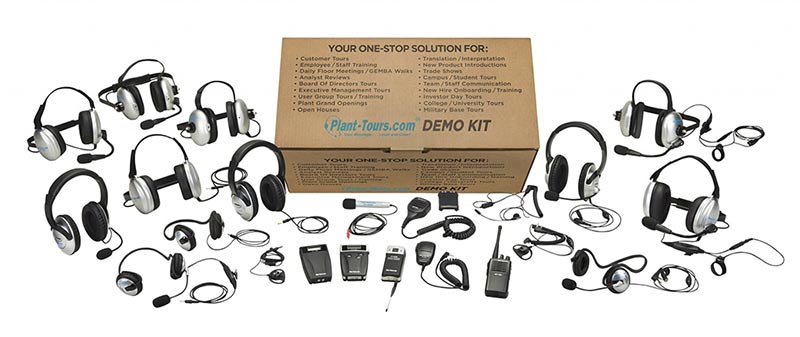To succeed in the hospitality industry, effective communication is essential. Everyone from the management team to the front desk customer-facing staff requires strong communication skills and training in using the best communication tools and protocols. I have provided consulting services for over 18 years to Fortune 500 companies in the manufacturing and hospitality sectors. In that time, communication in hospitality evolved from simple intercom systems to sophisticated digital platforms. Today’s hospitality industry is a competitive and dynamic business where guest expectations are high and continue to rise. In this article, I’ll discuss the importance of effective communication in the hospitality industry, how businesses can benefit from having great communication skills, and the downfalls of poor communication.
Understanding the Need for Clear Communication in Hospitality
The modern hospitality environment presents many unique challenges. Clear communication underpins exceptional guest service, but staff members and guests frequently come from diverse linguistic backgrounds where English is a second language, creating language barriers. In the hospitality industry, effective communication extends beyond spoken words. Non-verbal communication and body language are also crucial in meaningful interactions between staff and guests. Facial expressions, posture, and body language can help demonstrate professionalism and service readiness. Active listening using appropriate eye contact and responsive nonverbal cues can also help to show guests that their needs and concerns are important. Different communication styles can be adapted to suit diverse guest preferences and cultural backgrounds.

While consulting with Marriott, I observed that hotel properties with efficient communication systems consistently achieved higher guest satisfaction scores. Clear communication is integral to successful hospitality operations for three main reasons:
- Guest Loyalty and Trust
The benefits of building guest loyalty in the hospitality sector are substantial and well-documented. The ultimate success of any hospitality business will heavily depend on building and maintaining guest loyalty. When hotels establish transparent and trustworthy communication channels with their guests, they can create lasting relationships that turn visitors into loyal patrons who are more likely to make repeat bookings and purchase additional services. Guest loyalty results from an emotional connection between a guest and your brand; this connection is established via communication, which fosters lasting relationships. For example, a study of 322 hotel guests found that implementing effective communication methods leads to a more trustworthy perception of the brand, which positively impacts behavioral loyalty.
- Financial Performance
Poor communication practices often result in operational inefficiencies, which can have far-reaching financial consequences for hotels and other businesses in the hospitality sector. In addition to the direct revenue losses from problems such as double bookings, poor interdepartmental communication between front desk staff and other departments leads to housekeeping delays, food waste, staffing Rota issues, and underutilized amenities due to poor promotion. In contrast, effective communication internally and with guests leads to happier staff, guests, and accountants, thanks to healthier bottom lines.
- Review and Reputation Effects
Negative reviews caused by poor communication can decrease booking rates, lower average daily rates, and reduce occupancy levels. When potential guests find negative reviews online, they are significantly less likely to book – research shows that hospitality businesses can lose up to 22% of bookings due to negative reviews. If the bad reviews are repeated across social networks, the negative effects are compounded and can result in catastrophic booking losses of up to 70%. This compounding effect of online reviews is even more problematic as these negative reviews remain visible to potential guests for years online.
The Risks of Poor Communication and How to Improve
Poor communication can damage a hotel’s reputation and have a severe negative impact on the bottom line. I’ve documented numerous instances where communication breakdowns led to the following common issues:
- Double Bookings: Double bookings force hotels to refer guests to competitors, which damages their reputation and can lead to compensation costs.
- Maintenance Delays: Minor maintenance issues can become major problems if poor communication prevents timely repairs. For example, a minor leak can lead to expensive water damage and mold issues if not fixed quickly.
- Guest Complaints: Lack of proper internal communication between the front desk and team members in other departments often causes delayed resolution of issues reported by guests, leading to a poor customer experience.
- Staff Turnover: High staff turnover in hotels is often caused by poor internal communication and a lack of clear instructions and protocols, leading to frustration and dissatisfaction among hospitality professionals.
Although the front desk staff typically bear the brunt of communication failures as they directly handle guest complaints, the root cause is often communication breakdowns in other departments.
Streamlining Hotel Operations Through Better Communication
Effective communication forms the backbone of successful hospitality operations. Efficient hotel management requires streamlined operations, such as a centralized digital platform that updates all departments in real-time. The key to minimizing most guest complaints is proactive communication between departments. For example, front-desk staff have direct access to housekeeping and maintenance tasks so that when guests report issues, they can acknowledge the concern and provide an accurate timeline for resolution. This builds guest confidence in the hotel’s service.

How Interdepartmental Communication Drives Excellent Guest Experiences
Over the years, I’ve identified three main interdepartmental touchpoints in hotels that directly impact guest satisfaction:
- Front Office to Housekeeping
Timely room status updates are critical for check-in/check-out management and can prevent embarrassing situations like sending guests to unprepared, dirty rooms. Front desk staff need to know when rooms are ready for guests to manage room turnover and provide accurate availability information. In addition, housekeeping needs to be aware of any special requests by guests, such as additional amenities, so that the rooms can be properly prepared in advance.
- Front Office to Food & Beverage
When booking meals or snacks for room service, all guest preferences and restrictions need to be communicated to provide the requested services and prevent potentially dangerous allergen situations. Coordinating with room service also ensures accurate billing to prevent complaints.
- Maintenance to Front Office
The front office needs to know the maintenance status of guest rooms and hotel amenitiesto prevent allocating rooms that are still undergoing repair to guests or giving incorrect advice about hotel amenities. Good communication also ensures a quick response to guest maintenance requests and helps to maintain property standards.
Problems with communication in these interdepartmental touchpoints tend to be the underlying cause of many guest complaints, as they directly impact the guest experience and expectations. Providing a simple two-way radio system facilitates seamless communication between departments.
Using the Right Tools to Facilitate Effective Communication

Hotel communication systems include a wide range of tools and device. Selecting the right tools requires careful consideration of the unique needs of each property and situation. Through years of experience implementing systems across various properties in the hospitality industry, I know from feedback received that successful communication systems need to balance functionality with ease of use. Staff training programs that ensure staff can utilize communication tools effectively using the agreed procedures and protocols are essential. Regular training focusing on practical scenarios and emergency situations ensures staff can handle any situation that arises and gives them confidence. Integrated systems that combine traditional two-way radios with modern digital platforms are a popular solution with major hotel chains and seem to work well in terms of both guest satisfaction and operational efficiency. However, a comprehensive approach to effective communication systems must include ongoing staff training, maintenance, and support.







